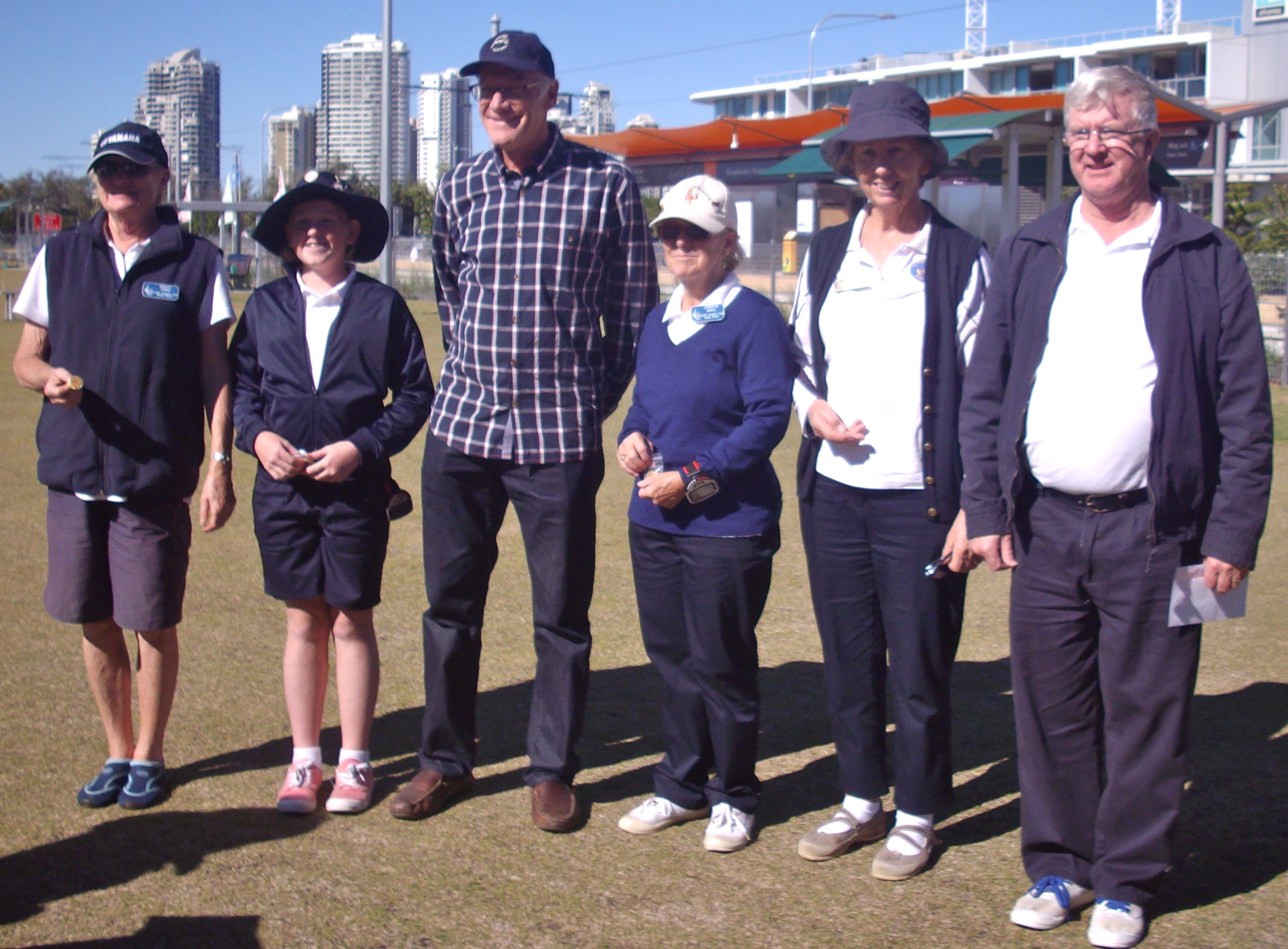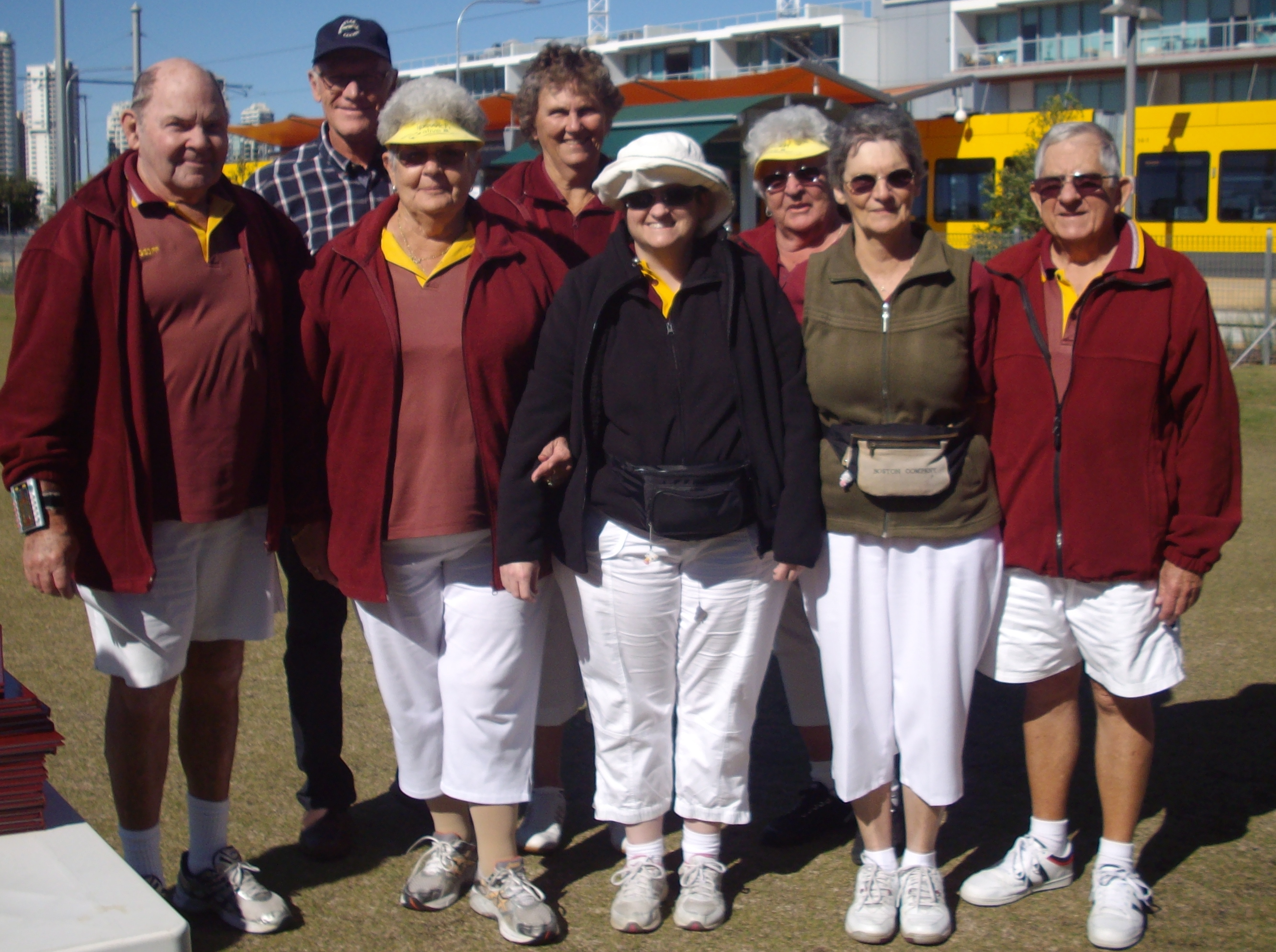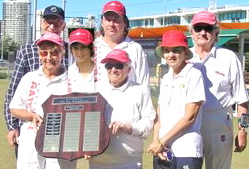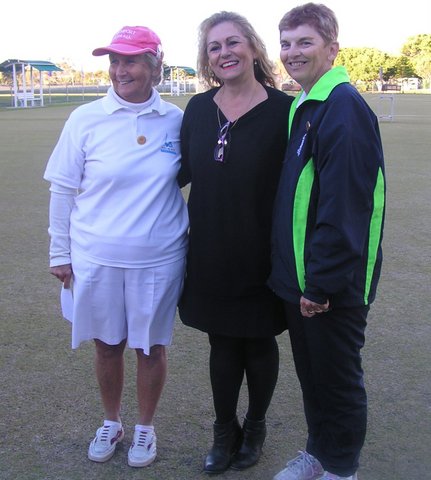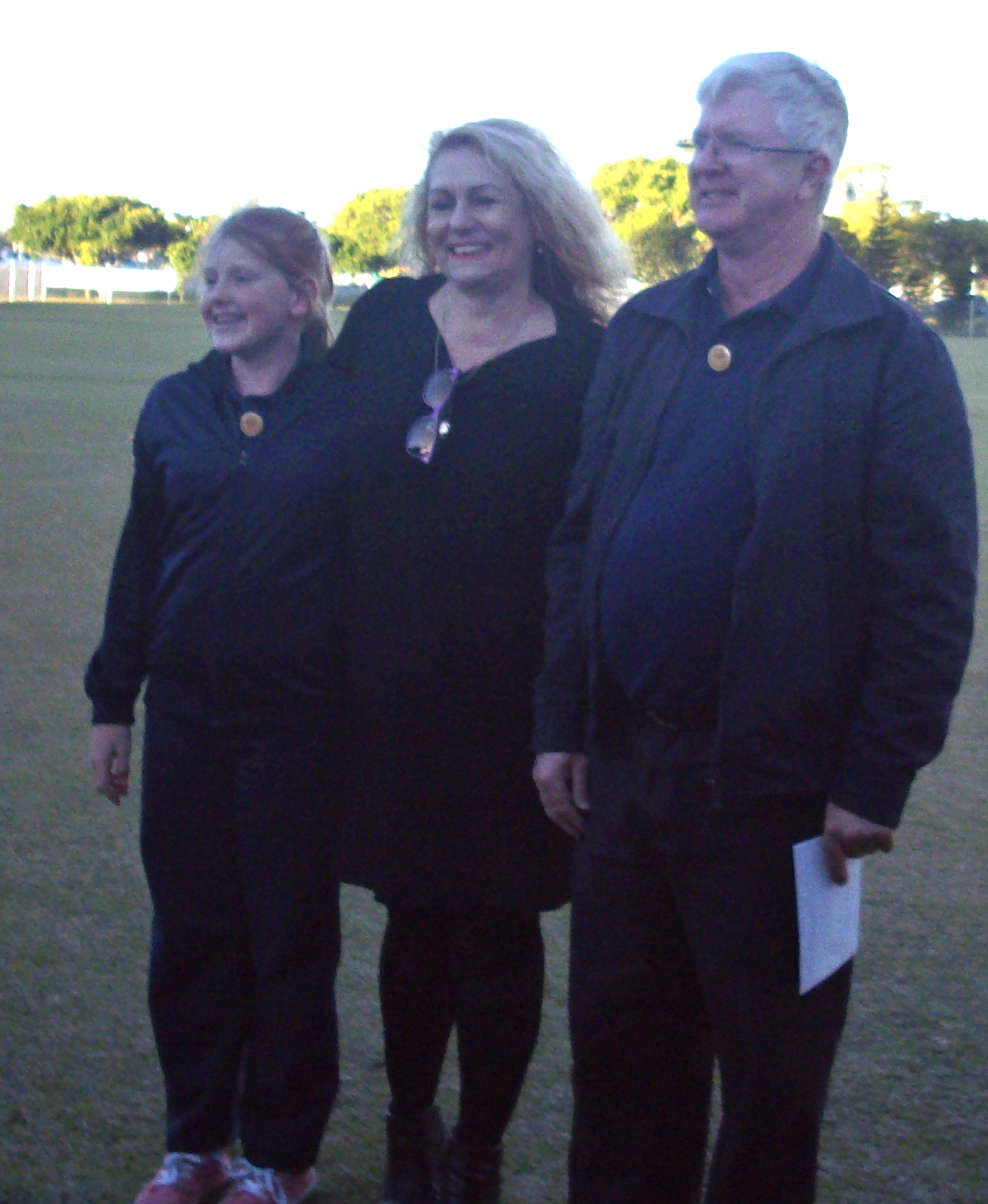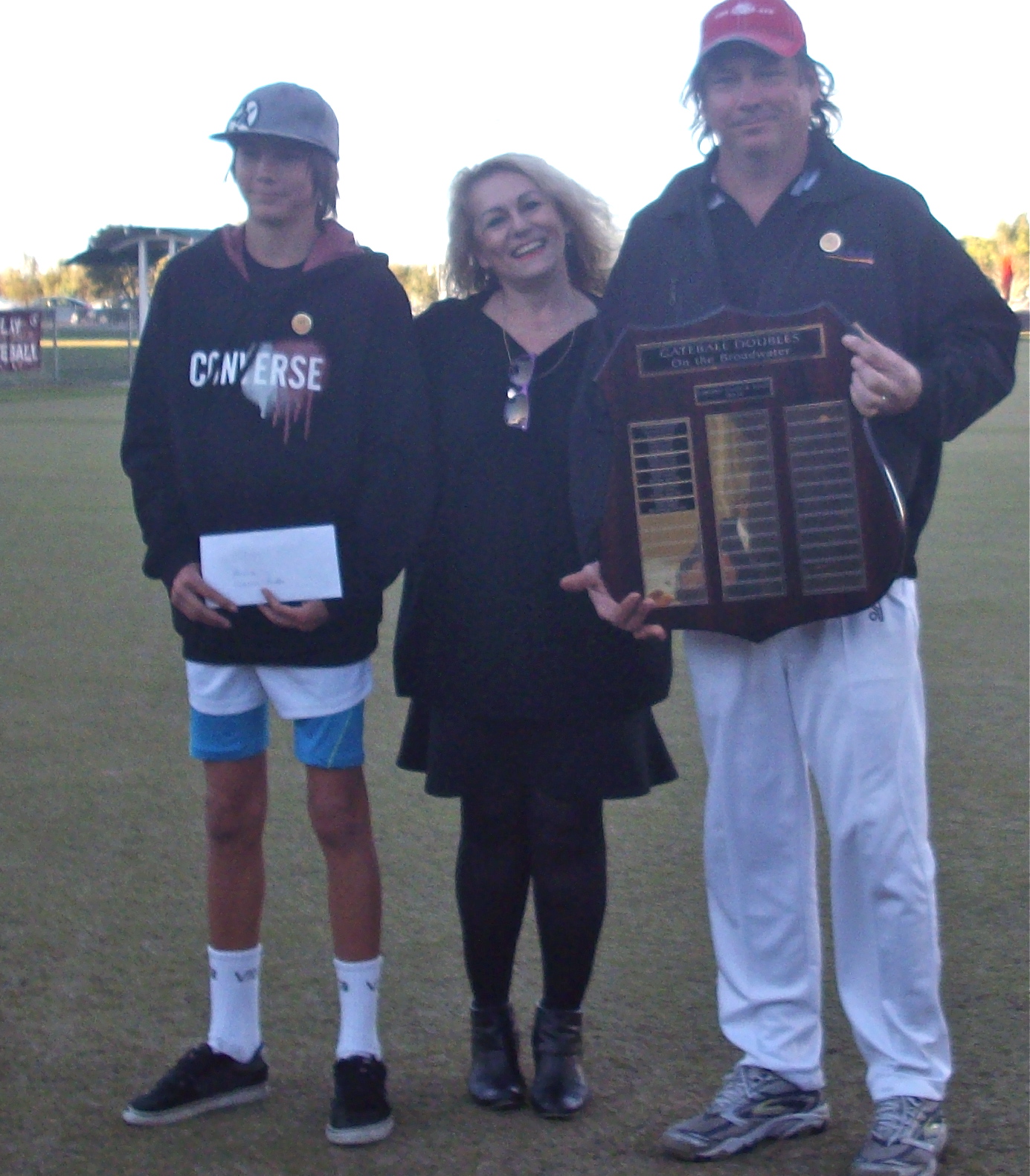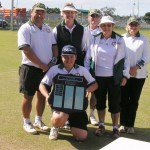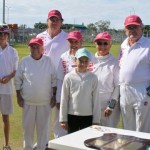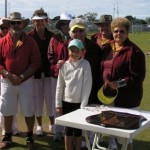By Barbara Northcott
The nine-member contingent from Southport Croquet Club had a comfortable flight into Hong Kong airport followed by a ferry ride into Macau. Two nights were spent getting our minds relaxed and our body time clocks reset as we toured some of Macau.
Everything was smoothly arranged once we arrived at the Grandview Hotel which had a small casino area compared to other gigantic establishments. The Macau officials told us of all the necessary details. No training was permitted on that Monday after we had registered and been given our hotel rooms. Buses were supplied from 8:30 onwards to take us the four kilometers or so to the grounds of the University of Science and Technology.
This was a stadium with a soccer field layout. To cater for the twelve courts, tape that was almost two inches wide was used to mark the fields. The tape was secured in the corner and several staples were used along the edges. These staples made the tape quite uneven and affected balls being hit into the court.
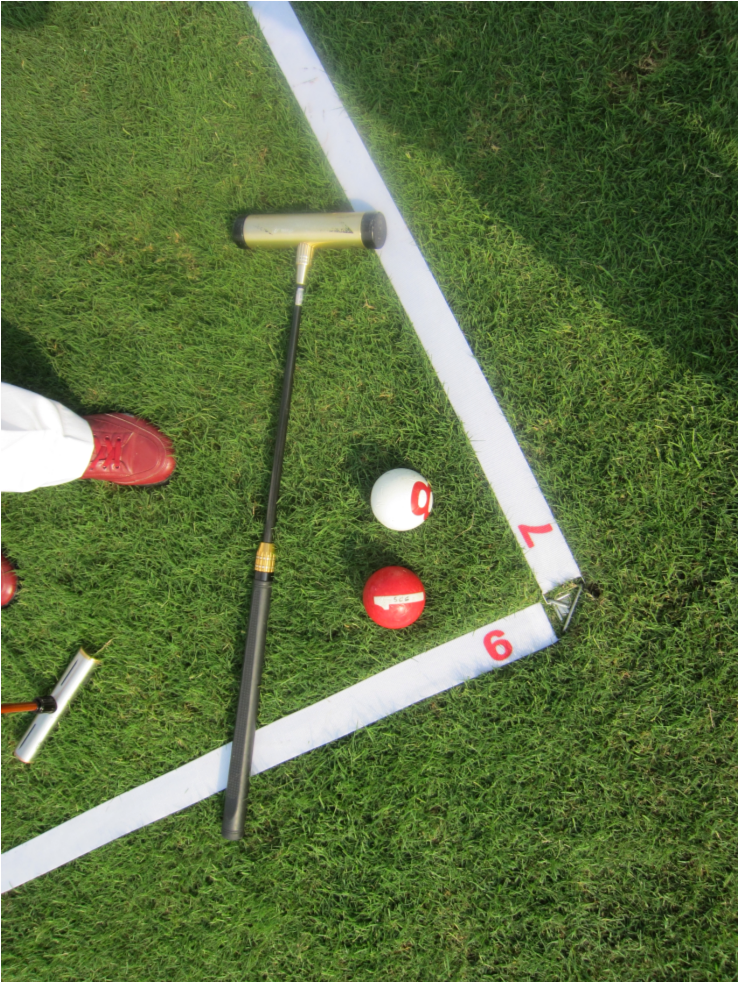
A corner of the court
The grass was very long and “spongy” but ideal for soccer. Some courts were fortunate in that they were on the edges of the soccer fields and were not as scuffed as those courts in the middle of the soccer field. Every team found it difficult to adjust to and some Chinese teams practiced non-stop.
Our team had difficulty in just hitting the ball from on side to another let alone sparking. Chris and Julia sprained their wrists trying to increase the distance of their strokes. Sparking a ball any distance require a hard hit. Then, after completing the spark, there was an indentation because of the spongy grass.
There were ample shade tents, tables and chairs allocated around the edges of the fields. Bottles of water were also in plentiful supply. There were twelve referee tents to which the teams had to report for their game. The toss and a “ceremony” was carried out there before the match. Martial music was played and each pair of teams, the referees and recorders marched onto the courts. Teams had to provide a helper for the score board. There were no lines persons.

Relaxing under the tent
I attended the briefing for the team leaders during which English, Japanese and Chinese instructions were given. But the question time contained some heated discussions in Chinese but I did not gather what the problems were. No translations were given. Each team’s set of numbers was handed out and we all went back to the courts.
The opening ceremony involved all the teams standing behind their name boards and facing the official dias. As well as the office holders who were seated in the official area, there were representatives from each of the countries that were participating. Mr Imagawa came to our group and asked Jim Northcott to be seated in that area. Speeches were of the usual formal type. Then there were twelve gateball sticks and balls placed in front of various officials including Jim.
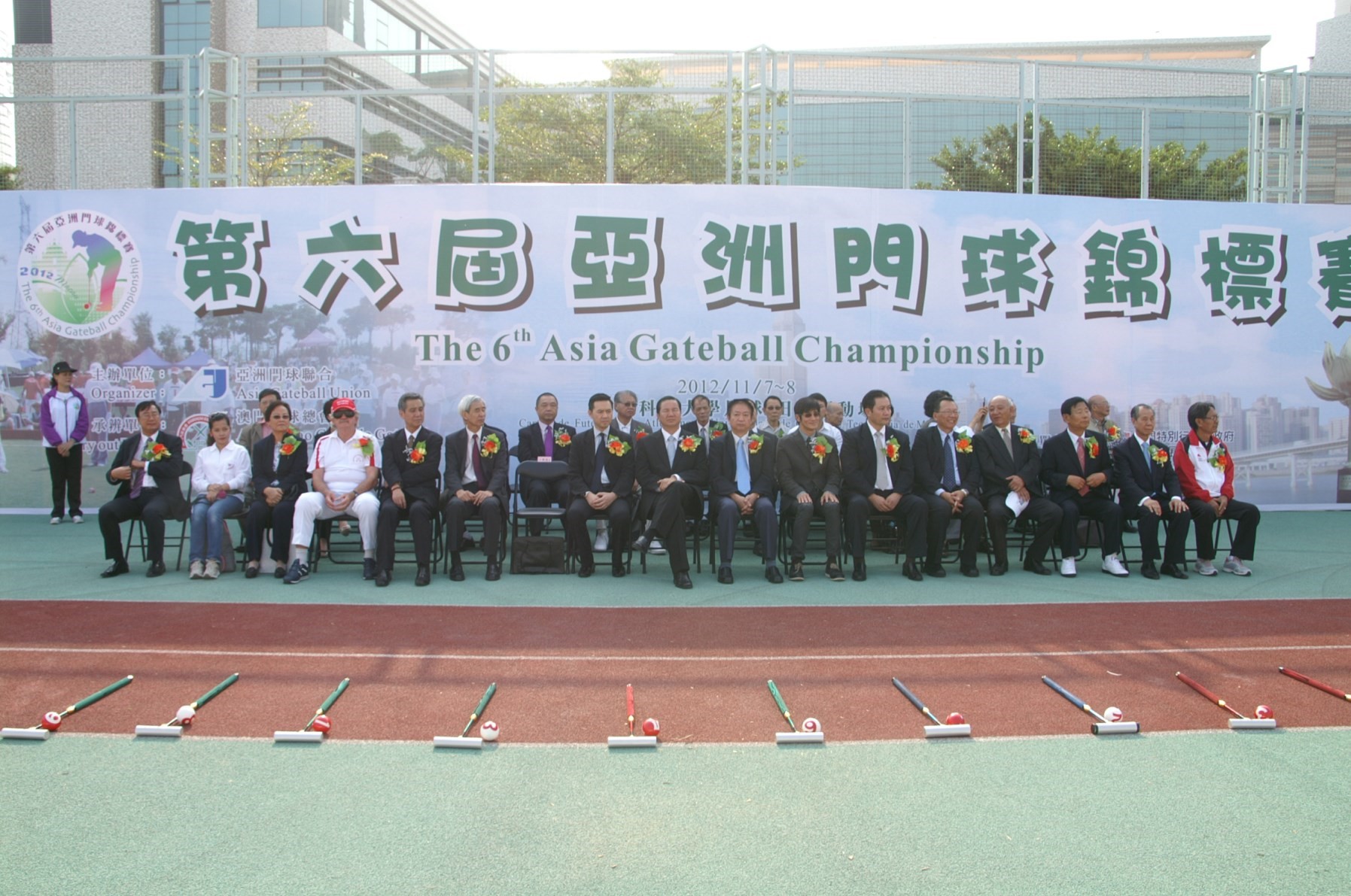
At the completion of the formal part of the opening ceremony, these people carried out a ceremonial hit of the ball through the designated ‘gates’. To conclude there was a Chinese Lion Dance that was accompanied by a small group of musicians.
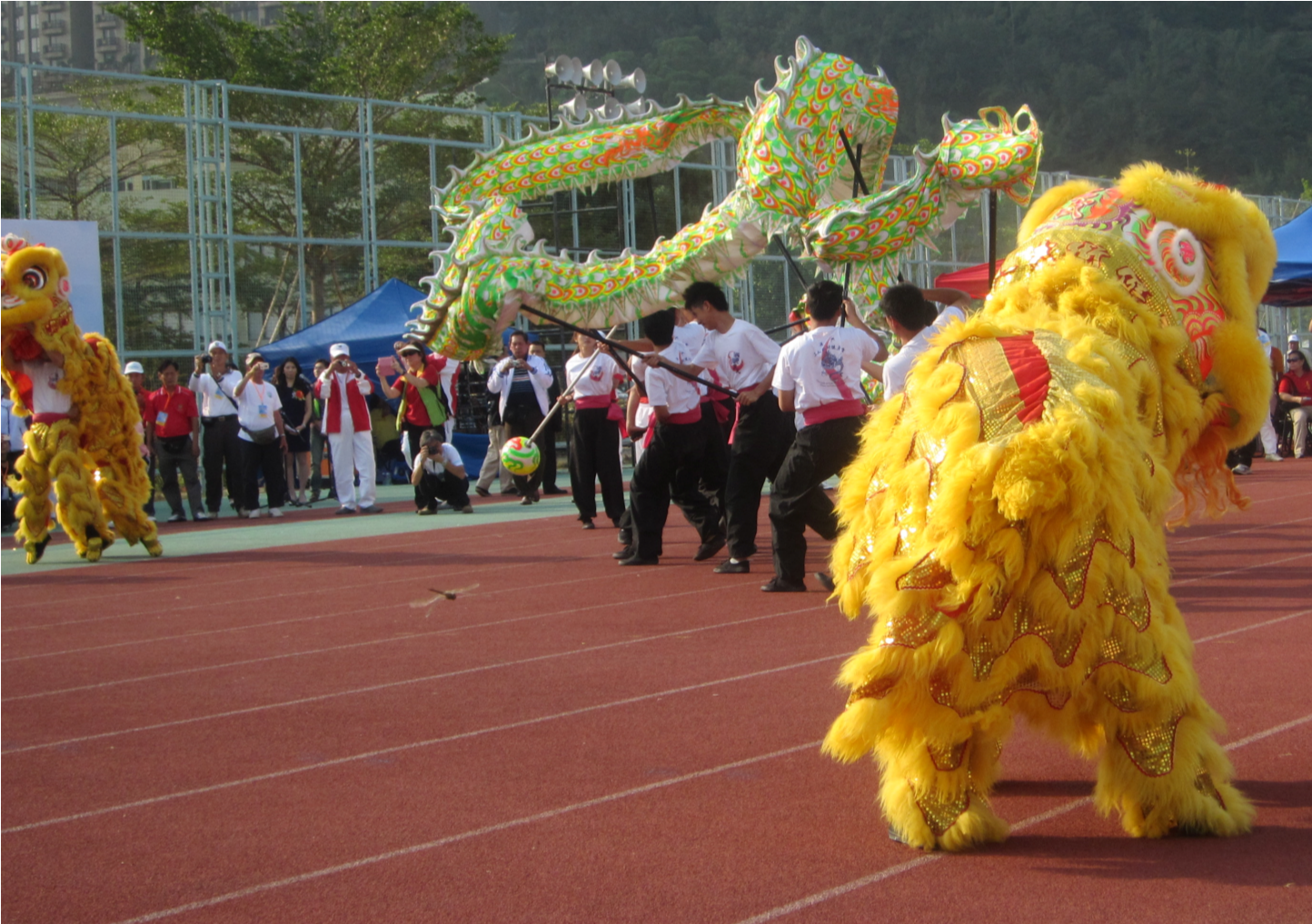
The Philippines Gateball Association was officially welcomed into the Asian Gateball Union. They had many governmental representatives whom we met and exchanged information. They are keen to grow in number of teams and to compete against other countries. Similarly, players from Bali have now asked for more information about visiting us at Southport. There were two young male players aged 7 and 9 who played in an Indonesian team and a young female aged about thirteen in a team from Bali. The children were all given great nods of approval and had many photos taken. Other countries competing were Hong Kong, South Korea, China, Chinese Taipei, Japan and of course Macau.
We had arranged for many gifts to exchange with the teams we trained or played against or to give to the referees. Also, we carried many laminated invitations to our Mallet Sports on the Broadwater competition for 2013. Hopefully we have made good contacts and teams from other places may consider coming to play in Australia.
Now to the actual games. Southport played a team from Macau first up. Both teams were quite nervous but the local team was able to get all balls onto the court after the first round, took the lead and won the game 19 – 8. Later that day we played the team from Chongqing in China. These young men were very skilful and good at making gates from a long distance. We lost this game as well 18 – 7. This team was the ultimate winners of the pool winning three from three but did not go any further than round two because they came up against the top Japanese team.
On Wednesday morning we played a team from Hong Kong. Finally we were able to demonstrate some better skills with all five balls having passed through Gate 1 by the second round. Our novice players felt less nervous and we won this game 10 – 8. So, to sum up, China won a clean sweep of our pool and each of us – Macau, Hong Kong and Southport – won one game each.
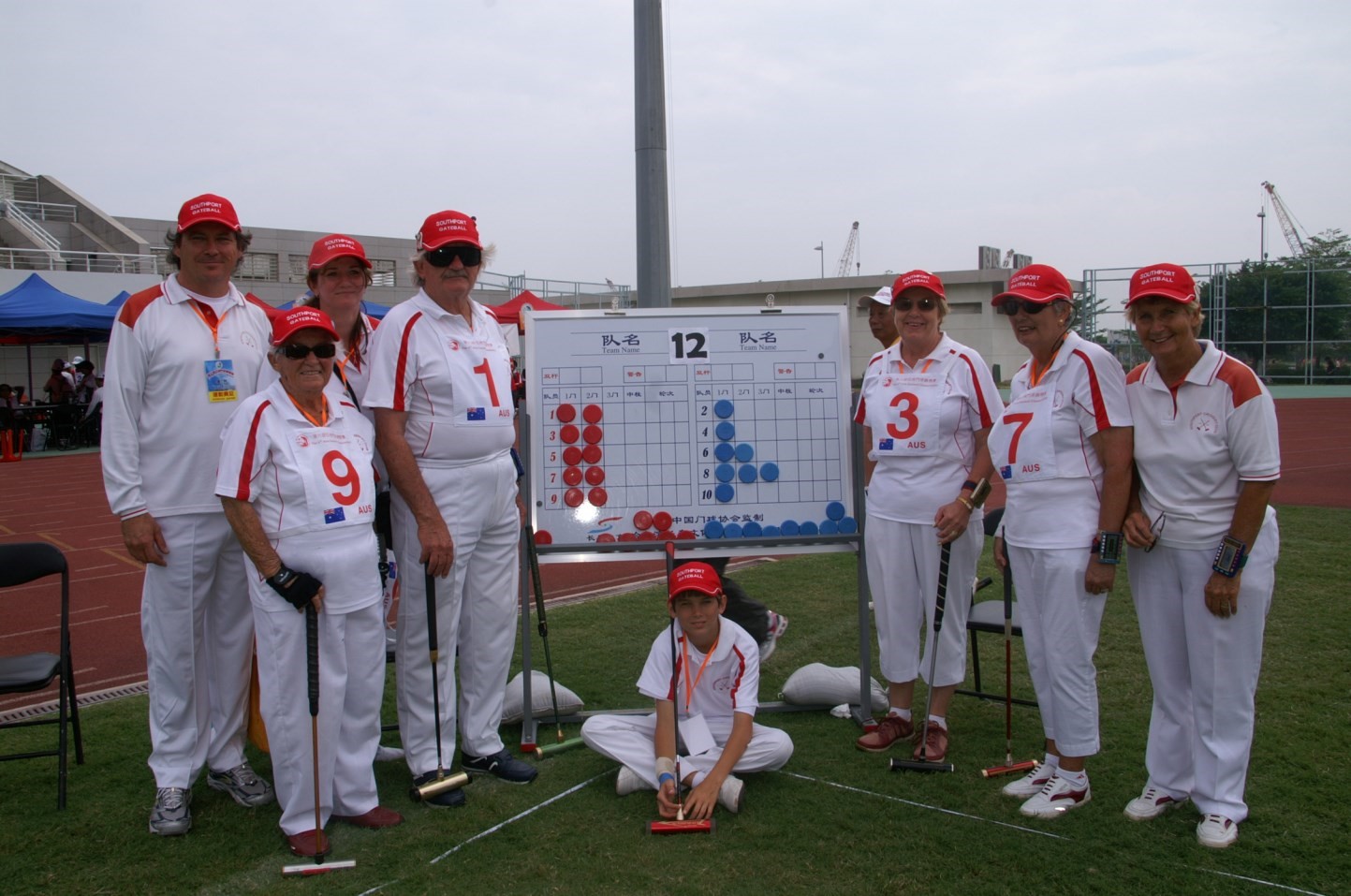
With 96 teams participating, crowds of people were everywhere and queues needed for everything. Often there was a demand for photographs of us by many other players because we were the only Western team there and we had a young player. In addition a stress on formal proceedings caused some players to feel somewhat out of place. That is why experience at these type of events is crucial for Australian teams to succeed in future competitions. It is hard to explain the atmosphere to those who have never been to such regimented events.
Southport watched all of the qualifying games. The Friend Sports Team from Kagoshima in Japan had attracted our attention so we followed them through the finals series. This team was comprised of one young woman (player #1) and four young men who showed great finesse and skillful play along with a really great sense of fun and humour in comparison to the seriousness of the Chinese players. When simple errors were made, the team amused the spectators. They played straightforward type of game using basic strokes very effectively and accurately and did not use ‘hold back ‘ tactics.
It was a hectic schedule for those who made it through the preliminary rounds. With less than half an hour break between the games from 1:00pm onwards, the competition concluded by 4:30 with the Japanese team defeating the ‘Traffic Team’ from China in a convincing manner. Several times we witnessed the fact that if a Chinese player deliberately does not take the field, sometimes it is hard for them to successfully pass through Gate 1 when it is crucial to the team’s attack to do so.
Our pool had referees who were all very friendly and very proficient but we observed that this was not always the case on some courts. In the final the assistant referee made a real blunder in picking up a ball that had come through Gate 1 and stroked a few meters towards the second gate. Somehow the assistant referee thought it had not passed through Gate 1 so he picked it up and attempted to send it back to the starting gate but was yelled at by the player and the spectators. Then, he tried to put it off the court as a foul and again he was wrong and had to be corrected by the Chief Referee and everyone around the court.
Two points of interest are as follows. That square headed sticks are no longer permitted. Referees came around with samples of these sticks and said they were not to be used. Everyone played with a round headed stick. Laser lights were used during this tournament by some of the Chinese teams. Japan and Hong Kong Gateball Associations have not permitted the use of lasers for many reasons – one of which is the possible damage to players/spectators eyes. The use of lasers in China is permitted but will be up for discussion, I was told, at a WGU Referee meeting. The lasers used emitted a green or red light that the captain used to direct the placement of the ball or the direction of the ball. Some teams used the laser surreptitiously, while others were quite open about it as was our opponents from Chongqing.
The closing ceremony was held before the banquet and was too long. Speeches were made, teams were brought forward to be given their medals and referees were applauded. All 96 teams were given a plaque by the Macau Gateball Association. Food was waiting to be served for quite some time. It was a low – key ending with a display of modern dancing, a traditional dance, and plenty of karaoke by many people. The best thing was a dance that moved into a conga type of happening and many of us danced through and around the tables.
The volunteer workers from Macau who arranged buses and did the ‘meet and greet’ functions were very capable and managed to get us where we had to go despite the language barrier. Macau has WiFi free throughout the city so that was a bonus for us. Our next day was spent sightseeing- two pandas in their zoo and local coastal villages plus eating delicious custard tarts. We were all astounded at the height and number of high rise apartments being built throughout areas of Macau and across the Pearl River in China. Bamboo scaffolding supported the workers!
The next sector was spent in Japan was half touring and half playing gateball. The Adachi group arranged a competition on Tuesday with six teams including a hearing impaired team. Lunch was al fresco and supplied by the players. By the end of that day, we were winning our games after adapting to the cinders surface at a designated gateball centre. For dinner our very generous hosts took us to a shabu shabu restaurant.
In Matsumoto another all day competition was arranged for us by Mr Kakuzaki, CEO of Sunshine Ace, at an indoor centre which had an artificial surface. A very appreciative group of ten teams enjoyed their games and meeting us. In Nagoya an afternoon was spent playing once again on cinders but this time under a huge freeway in the centre of the city.
On the following Sunday we travelled by train to Chiryu where we met up with the now famous Brazilian-Japanese team. They won the All Japan Team Championships within the last few weeks and showed us their huge trophy. They defeated the Sports Friends Team from Kagoshima to take the title.
There were players from the UK, Australia, Brazil, Russia and Japan gathered for a fun event with a BBQ lunch provided. Our friends from Hiroshima, Mr and Mrs Nosaka, were there because they met up with us in Macau where they were Official Japanese Referees. The top junior gateball coach, Mr Ohno, was there for the day along with Mr Imagawa. Quite an exciting line up as we mixed up the players to form teams while admiring the deft skills of the Brazilian ‘boys’. That Sunday concluded the whole of our trip so we travelled by Shinkansen to Tokyo for some to make their way home the next day. This was an extraordinary time of gateball tourism.
See more photos and watch a video of this visit on the following blog.
http://brasilclub.blogspot.com.au/
Elated and full of good food from the delightful hosts, we all headed back to Tokyo travelling on the Shinkansen (‘bullet train’). Thank you to Mr Imagawa, Mr Kakuzaki and Paul Salisbury for all of the arrangements so we could play gateball in these diverse settings.

